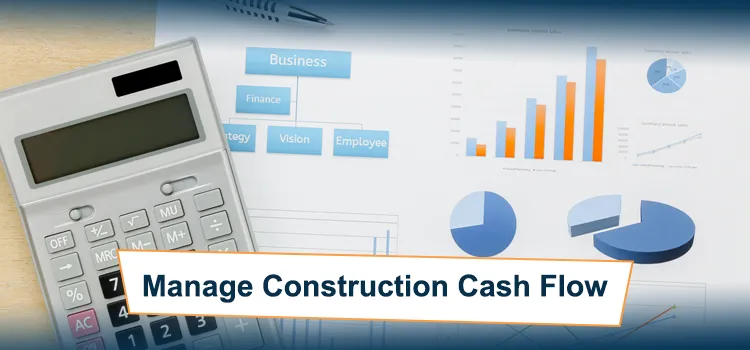
February 15, 2019 |Accounting & Bookkeeping


Construction companies face unique accounting challenges due to the nature of their operations and addressing these challenges effectively can enhance financial management and operational efficiency.
Accounting for a construction company involves tracking project costs, managing billing and payments, allocating overhead, and ensuring accurate financial reporting. Use specialized accounting methods such as job costing and progress billing to manage these complexities.
Here are some of the common accounting challenges faced by construction companies
Construction companies often experience cash flow issues due to delayed payments and fluctuating project costs. Managing multiple projects with varying budgets and timelines can lead to confusion and inaccuracies. Effective cash flow management is essential to ensure that there is enough liquidity to cover operational costs.
Accurate project costing and timely billing are crucial. Challenges include tracking costs across multiple projects and ensuring correct billing based on contracts and progress.
Managing inventory and material costs can be complex, especially when dealing with fluctuating prices and large quantities.
Allocating overhead costs accurately to various projects can be challenging, impacting project profitability and financial reporting.
Integrating technology for project management and accounting can be challenging but is necessary for improving accuracy and efficiency.
Lack of proper data can lead to errors in financial statements, making it difficult to assess a company's financial health.
By addressing these common challenges with effective strategies, construction companies can improve their financial management and set themselves up for long-term success.
Having explored the accounting challenges faced by construction companies, it's clear that tackling these issues head on is essential for success.
Therefore, let’s dive into some best practices and tips that can help streamline your accounting processes and ensure your company thrives in a competitive landscape.
Establishing internal controls helps prevent errors and fraud. Effective controls ensure accurate financial reporting and safeguard assets. Segregate duties among staff, implement approval processes for transactions, and conduct regular audits.
Implement job costing methods to track expenses for individual projects and identify potential cost overruns early.
Schedule monthly reviews of financial reports to identify trends, discrepancies, and areas for improvement.
Generate regular financial reports such as job cost reports, balance sheets, and income statements to monitor financial performance. Analyzing these reports helps identify areas for improvement, manage project costs, and make informed business decisions.
Invest in software that integrates accounting with project management to track budgets, expenses, and timelines efficiently.
Set up clear payment schedules and follow up on invoices promptly to improve cash flow.
The year-end closing process involves reconciling accounts, preparing financial statements, and reviewing financial performance. Working with a qualified tax advisor ensures compliance with tax regulations and helps optimize tax planning strategies.
At QMK Consulting, we specialize in providing comprehensive accounting services for construction companies. We offer specialized accounting knowledge tailored to the construction industry, ensuring accurate project costing and financial reporting. Our team provides timely and detailed financial reports, helping you monitor project costs and overall financial performance.
Enhance your financial management and address common accounting challenges with QMK’s expert services. Contact us today to learn how we can support your construction company’s accounting needs.
Accounting for a construction company involves tracking project costs, managing billing and payments, allocating overhead, and ensuring accurate financial reporting. Use specialized accounting methods such as job costing and progress billing to manage these complexities.
The chart of accounts for a construction company typically includes categories for project costs, materials, labor, overhead, and revenue. It’s designed to capture all financial transactions related to construction projects and ensure accurate financial reporting.
Construction companies generally use accrual accounting because it provides a more accurate picture of financial performance by recording revenues and expenses when they are incurred, regardless of when cash transactions occur.